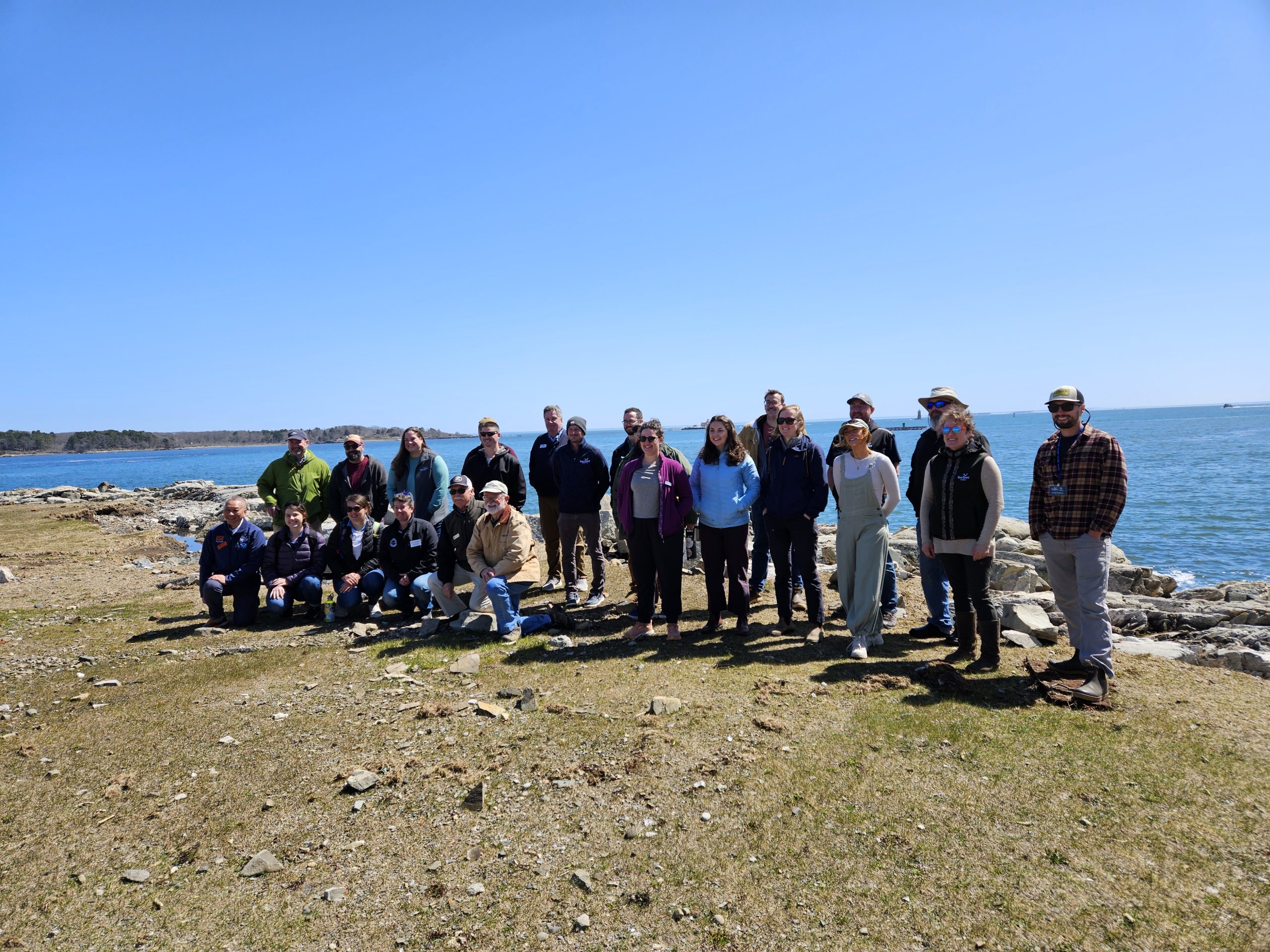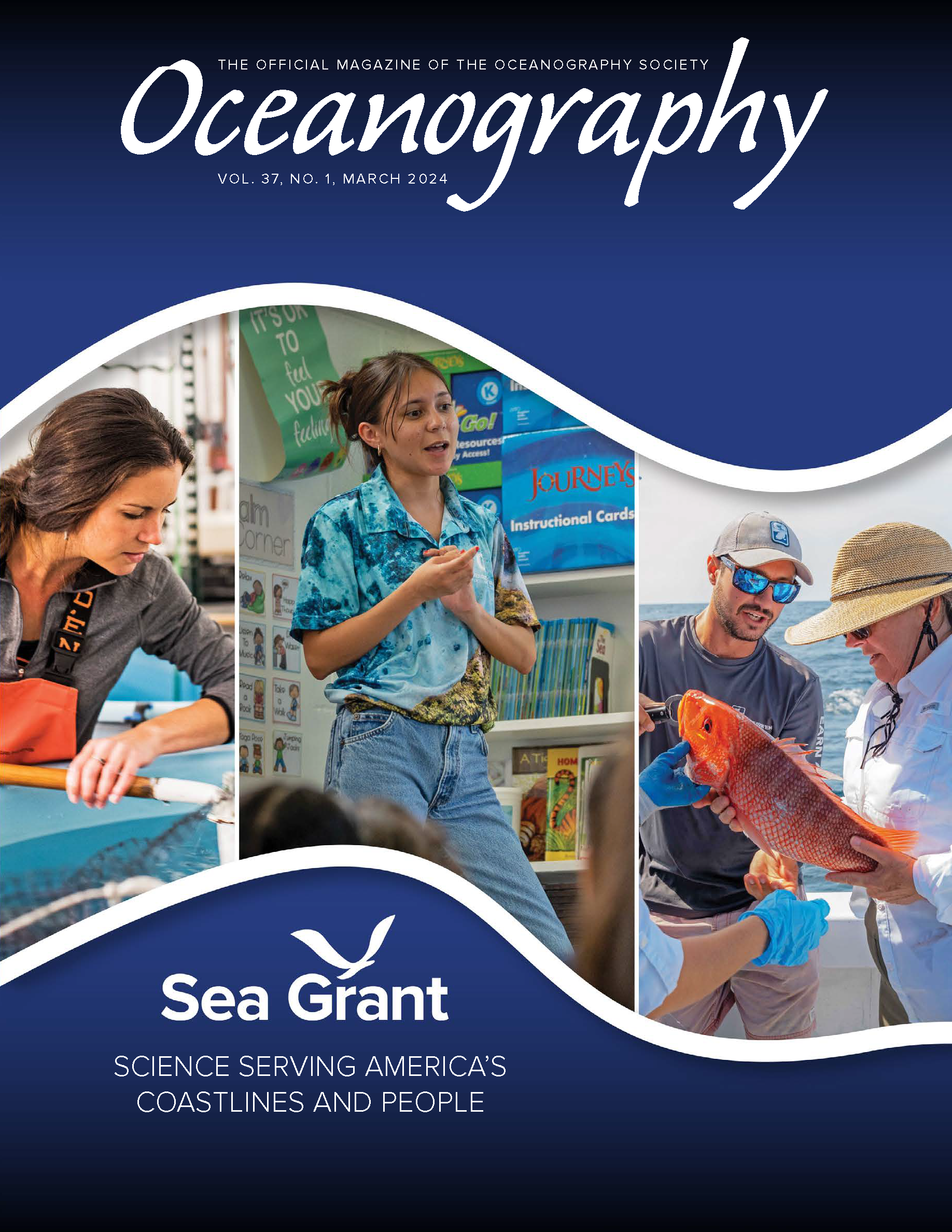NEWPORT, RI— Seaweed cultivation is a rapidly growing industry in New England, providing new economic opportunities for seaside communities and would-be sea vegetable farmers. The widespread efforts to improve the growth and marketing of seaweeds in the Northeast U.S. are receiving well-deserved recognition.
On Oct. 13, 2016, three state Sea Grant Programs — Connecticut, Maine, and New Hampshire, jointly received the Sea Grant Association’s Research to Application Group Award for their work to advance seaweed aquaculture.
The award, presented during the national Sea Grant Week conference in Newport, R.I., recognized the group effort titled “Northeast Sea Grant research paves the way for new sea vegetable aquaculture industry in New England.” Selected by a panel of judges from 17 total group nominations, this research has developed viable mass-scalable seaweed aquaculture for domestic markets. Outreach programs continue to expand these markets with active seaweed harvesters and diversified products. New processing methods and product forms are being evaluated and tested in all three states. Seed banks and nurseries were also established to assist growers.
“The award recipients exemplify the strength and value of integrated research, outreach and education programs supported by the Sea Grant network, and clearly demonstrate the importance of translational research in supporting science‐based management” said Sylvain De Guise, president of the Sea Grant Association.
For nearly 30 years, Sea Grant-sponsored researchers primarily in Connecticut, New Hampshire and Maine have investigated the basic physiology, genetics and growth of economically important seaweeds. This work served as the basis for recent research advancements in nursery and cultivation techniques and new applications. Native seaweeds are now grown for food and other products such as fertilizer. Early milestones included growing sugar kelp in culture through an entire life cycle. Through partnerships with Ocean Approved LLC (Portland, ME) and Bridgeport (CT) Regional Aquaculture Science and Technology Education Center, culture systems were piloted and seeded kelp was grown on longlines near Bangs Island (ME) and in Long Island Sound. Bioextractive properties of seaweeds to clean polluted waters were analyzed in New Hampshire, Connecticut and Bronx, NY with additional support from the U.S. EPA.
Connecticut and New Hampshire Sea Grant researchers also developed a free technical manual and training videos for the culture of four species of seaweed for human consumption, covering the biology, culture and cultivation systems for sugar kelp, Graciliaria, nori, and Chondrus crispus (Irish moss). Connecticut Sea Grant extension staff partnered with Connecticut state regulators to develop a permitting process for prospective kelp farmers. Workshops and public events have helped introduce businesses and the public to the benefits of seaweed as food and other products.
Worldwide, seaweed production eclipses the production of cultured shellfish, finfish and other marine organisms, but U.S. production contributes only ~1%. This work will help to increase seaweed production, providing food and jobs. Seaweed cultivation also improves water quality in eutrophic urban coastal waters by removing nitrogen and phosphorus.
Team members named in the award nomination: Drs. Charles Yarish and Jang Kim (University of Connecticut (UCONN) and Connecticut Sea Grant), John Curtis (Bridgeport Regional Aquaculture Science and Technology Education Center), Drs. Nicholas Brown and Susan Brawley (University of Maine), Sarah Redmond and Dana Morse (Maine Sea Grant Extension); Drs. Chris Neefus and Lindsay Green (Univ. of New Hampshire and NH Sea Grant), Amanda LaBelle (Island Institute), Anoushka Concepcion (Sea Grant and UConn Extension) and Peg Van Patten (Communicator, Connecticut Sea Grant).


